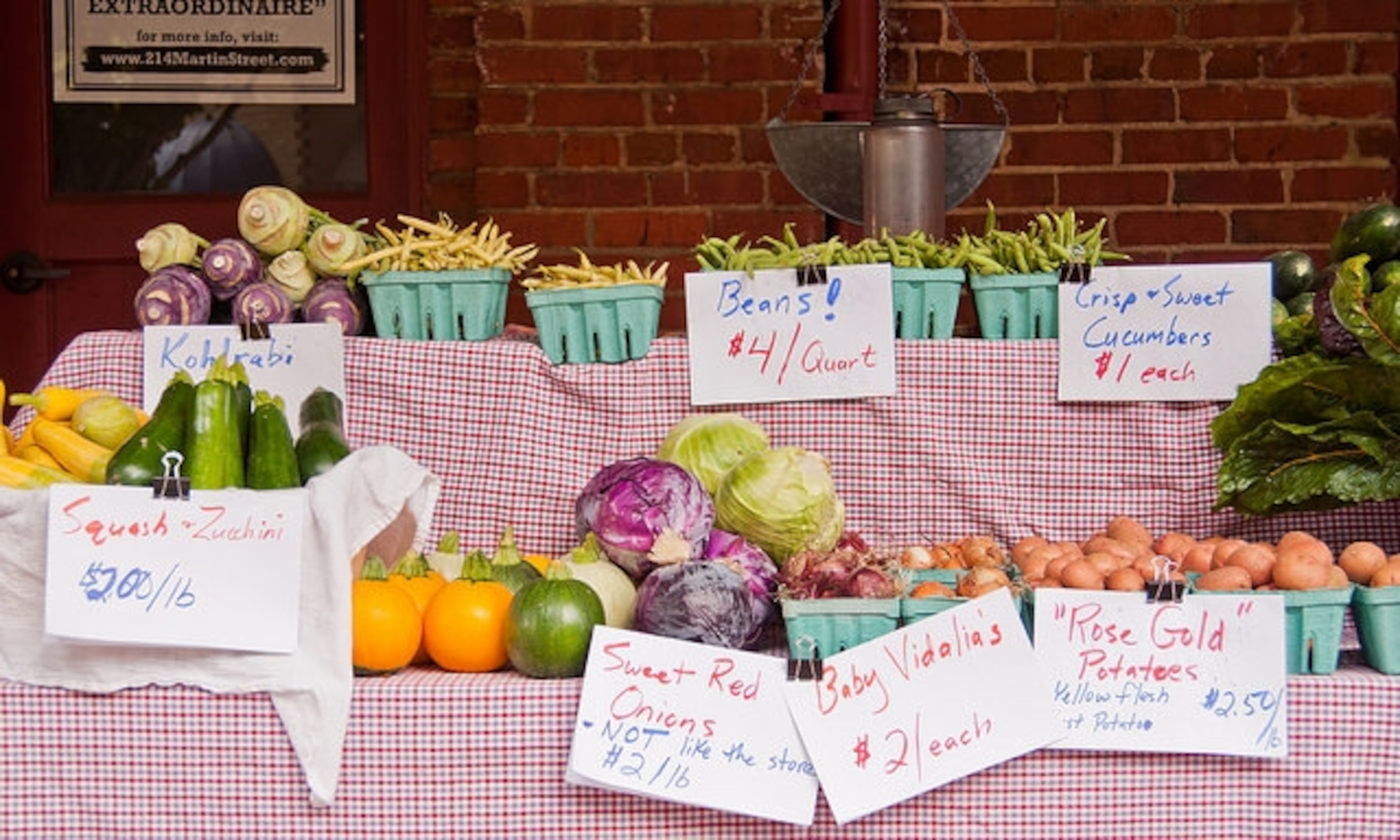
New “Farmers Market” Stamp a USPS Blunder
What do farmers markets, Harry Potter, and Jackson Pollack’s cigarettes have in common?
They’re all at the center of firestorms (the first impending) about United States postage stamps.
On August 7 the United States Postal Service introduces its Farmers Market stamp, during the US Department of Agriculture’s National Farmers Market Week from August 3 through 9. If you’re a food lover, an environmentalist, or a security expert, you might marvel that people need a federally funded boost or postage-stamp prompt to eat what is fresh, delicious, and particularly plentiful in abundant August. Farmers market food tastes better, is better for the earth, and ensures geographic diversity that decreases the threat to our agricultural system. Markets are community centers where we connect with each other over food; people don’t take selfies in grocery stores.
The greatest argument against farmers markets generally these days is that they are more expensive than supermarkets and inaccessible to people of low or even average means. If the government is trying to fight this notion, this stamp isn’t the way to do it. The stamp portrays food prices that would make even an evangelist like me think twice.

Bread is $7 per “LF” (which I assume is loaf), according to a sign in front of a basket of baguettes. The loaf I purchased for Sunday dinner at my Washington, DC farmers market, which everyone complains is the highest priced around, was $3.50 for the most expertly crafted shattering, crunchy crust and airy interior found otherwise only in Paris. A red bell pepper at the imaginary USPS farmers market will set you back $2.
Maybe it’s a Freudian slip, trying to raise imaginary money after their $5 billion loss last year. You probably spend less time today thinking about postage stamps than you did a decade ago, with the advent of online banking and eight-year-olds and octogenarians having email accounts. But postage stamps are still important because their subjects can record what matters in America at a moment in time.
Take for example the Harry Potter stamp introduced late last year, and the accompanying firestorm that a foreigner would be allowed to officially certify United States mail. The stamp pinpointed first the wild popularity of British wizard Harry, who I’m uncertain zealous critics know is fictional in the same way that I was never quite sure that Dan Quayle realized that Murphy Brown and her child weren’t real. Second, the stamp revealed our uneasiness about the ‘foreign’ in a 21st-centrury world in which being ‘American’ is an increasingly complex identity.
The USPS farmers market is as fictional as Harry Potter but as with Harry Potter stamps, given the opportunity, can stoke preexisting culture wars rather than simply commemorate or celebrate a subject. In 1999, Jackson Pollack was portrayed on his stamp in an iconic Life magazine photo, but with his cigarette omitted from the picture. At the time America was only a year out from the states’ $246 billion master settlement with tobacco companies and the USPS made a public health statement by removing Pollack’s cigarette. (Full disclosure: I worked for former Surgeon General C. Everett Koop at the time.) The USPS had to make a choice there though: cigarette or no cigarette. No one would have thought it strange to simply display food labeled with names but no prices. Prices are so geographically dependent and controversial, I’m doubly confounded by the decision to be so specific.

The stamp likely won’t determine whether an individual frequents farmers markets. But to the extent that stamps’ subjects are chosen for a reason, the stamp as released won’t create a positive impression for those who perceive farmers markets as expensive, elitist, and out of touch. (The same criticism, maddeningly, that all good food advocates face.) The stamp didn’t do farmers markets any favors, but sends a tired, old, and wrong message. While well intentioned, it’s guilty of what so many of us good food advocates do more often than we care to admit, thereby playing into the hands of our critics: preaching to the choir.